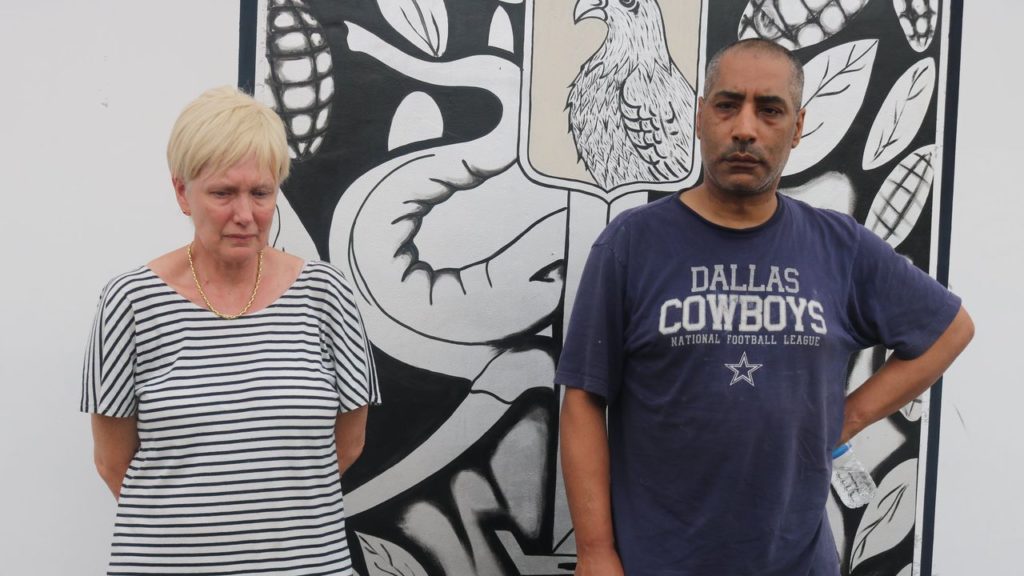The trial began in Bruges today of the ‘diabolical couple’ Jean-Claude Lacote and Hilde Van Acker, accused of the murder in 1996 of the British businessman Marcus Mitchell.
The pair have already been tried, in their absence in 2011, when they were sentenced to life imprisonment.
Marcus Mitchell was one of the victims of the couple, who convinced him to raise £300,000 to invest in a business that would sell helicopters and bulldozers. When he found that the money had vanished and no helicopters to be found, he is assumed to have demanded his money back.
According to the prosecution, he was shot in the face twice with a gun recently purchased by Lacote, and his body disposed of in the dunes at Knokke, where it was later stumbled upon by some playing children.
The two suspects were questioned in the murder case, and appeared to be prime suspects. Nevertheless, each was released from detention after a brief period, and each in turn decided to flee the jurisdiction.
The name ‘diabolical couple’ was attached to them by the press because of a slight similarity between the Mitchell murder and the 1955 French film Les Diaboliques, in which a man’s wife and mistress plot to murder him.
There then followed 23 years of cat-and-mouse, with the authorities able to track the movements of the pair from the US to Canada, Ivory Coast, South Africa and Brazil. Lacote was arrested and imprisoned in South Africa, but escaped with the help of Van Acker dressed as a policewoman.
Thought that period, the two hardly lived under the radar. Lacote continued his life as a swindler and con-man, living high on the hog with a Ferrari and luxury villa in Abidjan, as well as producing a TV show in South Africa on the police.
All along their movements were tracked back in Belgium by the federal police’s Fugitive Active Search Team (FAST).
“We got up with this case and we went to bed with it,” commented the team’s founder Martin Van Steenbrugge a few days after the arrest. “It's a very haunting thing, you could write a film about it.”
But if the couple’s movements were known, why did it take so long to bring them to justice?
“Ivory Coast is a country we know little about. They also have few extradition treaties. We had to be very patient, as we did not want them to get a signal that we had them in our sights. That was our biggest fear. But being patient has paid off.”
The case continues.
Alan Hope
The Brussels Times

